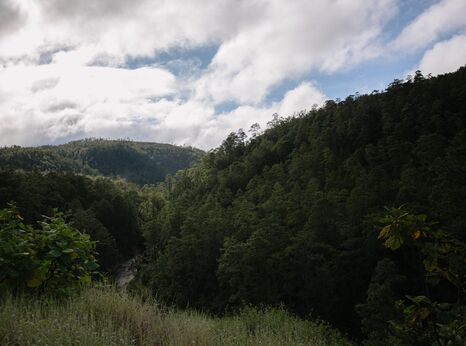Water defenders at risk of detention

According to Global Witness, Honduras remains amongst the deadliest countries for land and environmental defenders in the world. In addition to high levels of violence, including threats, intimidation and killings, as well as stigmatization and smear campaigns on social media, many of them also face unfounded judicial proceedings designed to intimidate and harass them and hamper their human rights work.
The Municipal Committee for the Defence of Common and Public Assets (Comité Municipal por la Defensa de los Bienes Comunes y Públicos, CMDBCP) from Tocoa, North of Honduras, gathers several organisations defending land and environmental rights: the Environmental Committees of Sector San Pedro (13 communities) and Sector Committee Abisinia (14 communities); the Environmental Committee of the Community of Guapinol, campesino groups and the organisations Coordinadora de Organizaciones Populares del Aguán (COPA); Fundación San Alonso Rodríguez (FSAR) and Parroquia San Isidro de Tocoa.
CMDBCP opposes the operating license issued to the mining company Inversiones Los Pinares in the Carlos Escalera National Park, formerly known as Montaña de Botaderos, in the municipality of Tocoa. On 1 August 2018, local residents set up the “Guapinol camp” to peacefully protest against the license and mining exploitation in the core zone of a protected area of the water sources on which they depend for their survival. They have filled several criminal complaints before local Courts, still pending.
Members of the CMDBCP have faced at least two criminal proceedings since 2018 for defending the Guapinol and San Pedro Rivers. In March 2019, a judge dismissed the charges against 12 of them, accused of “aggravated arson” and “unjust deprivation of liberty”, but the public prosecutor’s filled an appeal. On 13 August 2020 the Court of Appeals of Francisco Morazán revoked the dismissal ordered in March for five of the 12 defenders, which means they could face a new trial and be sent to pre-trial detention once again.
In September 2019, seven other human rights defenders were charged and detained pending trial. After two months in a high security jail, they were transferred in November 2019 to the Olanchito detention centre, where they remain since. (see Honduras: Authorities must guarantee due process for human rights defenders https://www.amnesty.org/fr/documents/amr37/9929/2019/en/ ). Another one has been held at the La Ceiba Penal Center since December 2018. Some of the human rights defenders currently detained have reported preconditions including hypertension and respiratory issues.
Honduras has been facing a serious problem of overcrowded jails for years, the majority of whom are persons in pre-trial detention (not granted with the possibility to defend themselves in liberty). According to the National Committee for the Prevention of Torture and Cruel, Inhuman or Degrading Treatment (CONAPREV) there are currently 271 detainees in the Olanchito detention centre (where seven defenders from the CMDBCP are being held, despite a capacity for only 160). At the national level, the total capacity installed is for 12909, while the prison population is currently over 21700 inmates. International human rights bodies such as the Inter-American Commission on Human Rights have regularly expressed concern about the conditions of detention in Honduras, which present a risk to the life and integrity of persons deprived of their liberty due to poor infrastructure, lack of hygiene, lack of sanitary facilities and decent places to sleep, negligent medical care, insufficient food with little nutritional value, and poor and inadequate access to water.
In early August, Honduran prison authorities reported a total of 1,121 detainees positive to COVID-19.